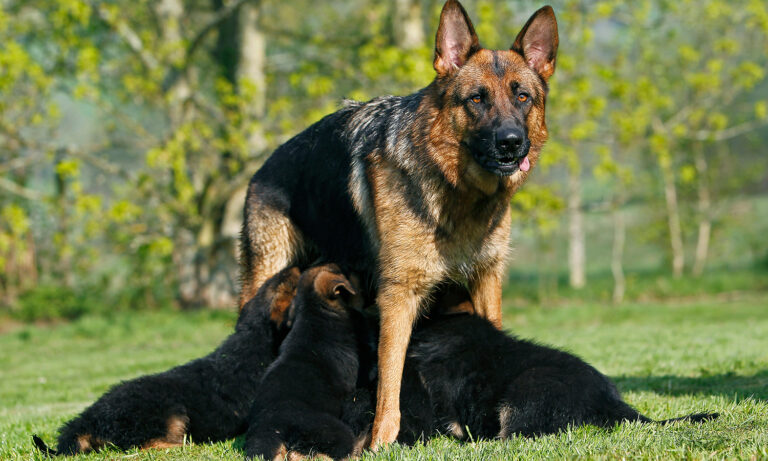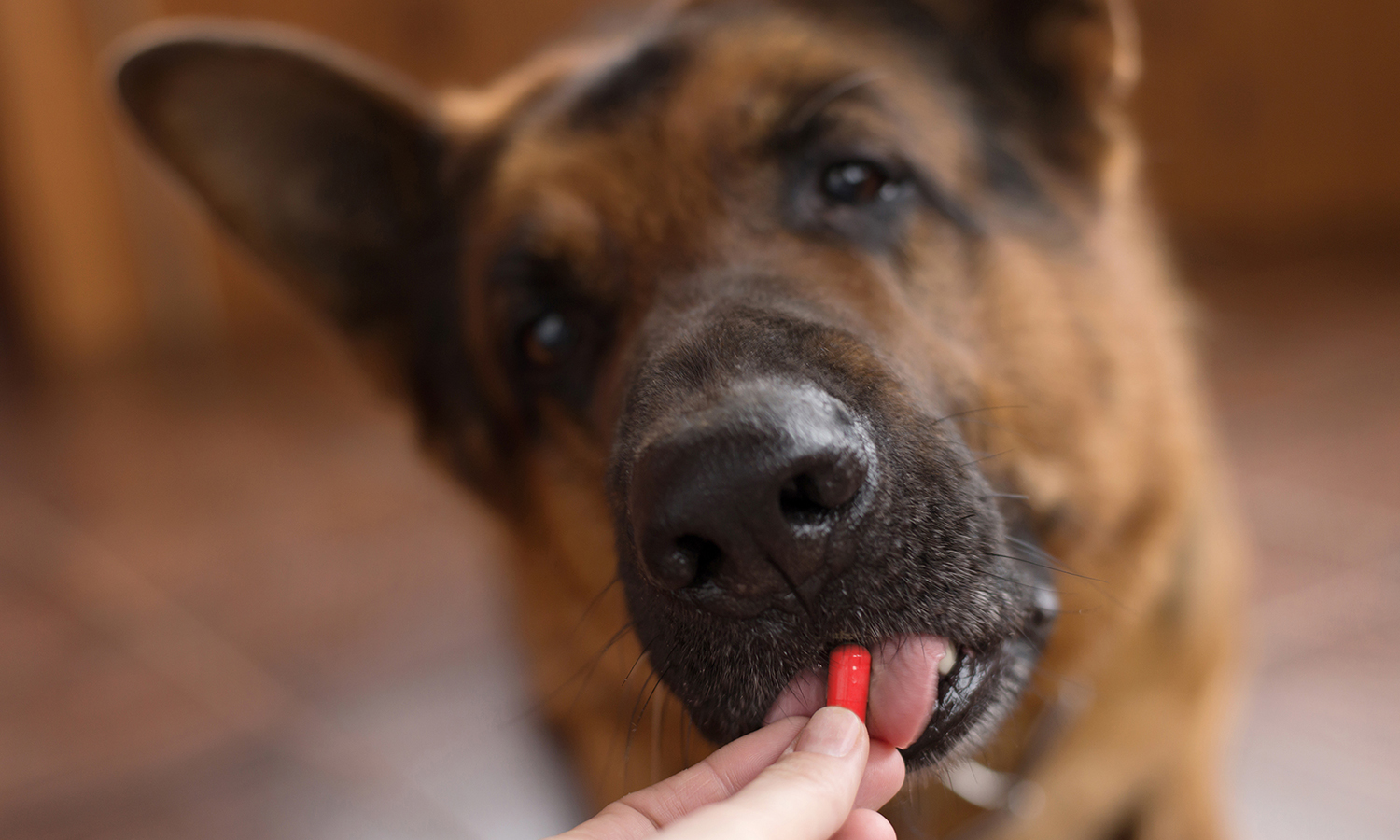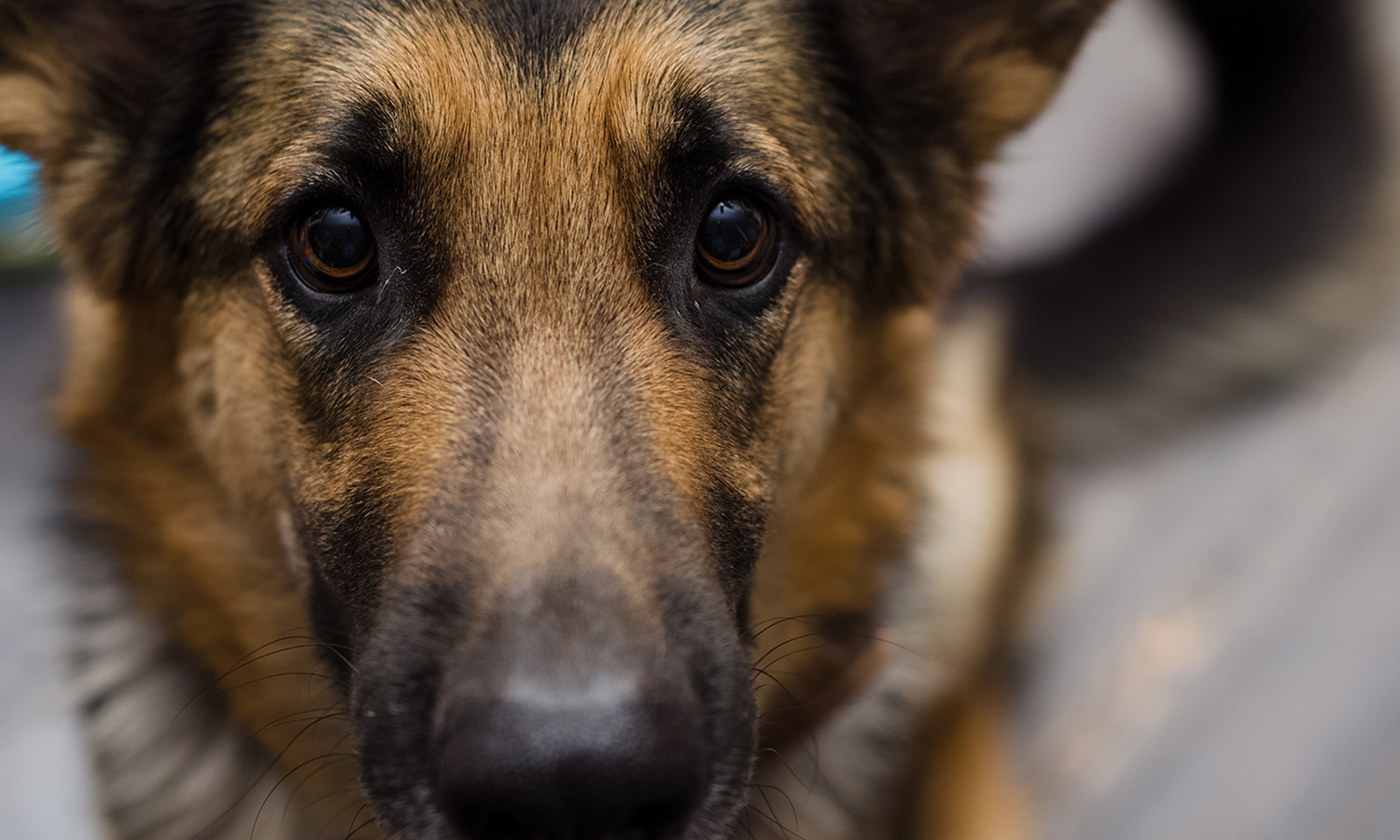
To breed or not to breed. Remember the months of planning and depth of self-examination you did before you bought your first Shiloh Shepherd puppy? Before you decide to produce more, honestly ask yourself why you want to raise Shiloh Shepherds.
There is more to raising a litter than you might think. It can be very expensive, it involves tremendous amounts of your time (for several weeks) and can even put the health of your Shiloh at risk. You must always consider the health of your adult dogs first. Even if your bitch is in top condition, rearing a litter of puppies takes a tremendous toll on her health and it can take weeks, sometimes months, for her to recover fully.
The picturesque setting of your Shiloh nursing her pups will get old quickly when you consider Shiloh Shepherds often have large litters. And if your bitch cannot support them, guess who has to pick up the slack?
So before you bring 6-10 Shiloh Shepherd puppies into the world, know ahead of time what you will do with all the puppies. Your choices include: 1) Keeping them all, going broke and seeing a therapist; 2) Giving them away to family and friends—some of whom might even speak to you again some day; or 3) Attempting to sell them to complete strangers with whom you know almost nothing about. Finding good homes for your puppies is difficult and time consuming.
Another thing every responsible dog breeder should always do is take responsibility for EVERY puppy they produce…and for their entire lives. You made the decision to have them, and therefore they will always be your responsibility.
WC Shiloh Shepherds are very large dogs that require excellent health care, top-quality food, plenty of exercise and life-long socialization. If you can’t guarantee every puppy a home where it will get all of these things—plus endless love from a devoted owner—then you shouldn’t breed Shiloh Shepherds. All breeders have horror stories about having sold or even given a puppy to an apparently wonderful family only to have that puppy physically and/or psychologically abused. In many cases, these puppies (who are now adults) have to be reclaimed by their breeder (that means YOU), placed back in the breeder’s home or in another environment, or in extreme cases, mercifully put to sleep.
Do your homework. For those few strong enough to commit to improving the Shiloh Shepherd breed, there are proven ways to go about it.
First, become a serious student of WC Shiloh Shepherds, their lineage, possible health and temperament issues and general care. Continue learning by talking with and getting to know as many WC Shiloh Shepherd breeders and owners as possible. Read and reread the Shiloh Shepherd breed standard until you know it by heart. Study canine genetics and learn about dog breeding in depth. Have new homes waiting for your puppies BEFORE they are born. Examine your financial situation—breeding WC Shiloh Shepherds isn’t cheap—even for one litter.
And most importantly, all of your breeding stock must be assessed for overall health and physical condition BEFORE they are considered for breeding. They should be certified for hips, elbows and eyes, and evaluated and/or certified against other genetic conditions predisposed to Shilohs such as SAS, EPI, thyroid, etc. (See Health Screening on page 56) Know the health and temperament of your dogs, their littermates and their ancestors. Only then can you minimize your risks of health and temperament issues in the puppies you produce.
Lastly, before you make your final decision to breed, go down to your local animal shelter. Take a good, hard look at all those adorable, pure-bred dogs and puppies and recognize that most of them never will be adopted and that very large, adult dogs are usually the first to be euthanized. The decision to breed any dog is not one to be taken lightly.
the commitment. In terms of hours of labor, research, travel, worry and heartache, food, x-rays, ultrasounds, heating, advertising, stud fees (and the wear and tear on you and your house that six or more growing pups will make) there is no financial gain in having a litter of WC Shiloh Shepherds. Your reward comes from the pleasure you get from handling and rearing the puppies; from the close relationship you foster with your dog as you tend to her every need; with the enduring friendships you make with the people who are lucky enough to receive one of your pups; and lastly, from the knowledge of knowing you did everything humanly possible to produce healthy, sound puppies that contribute positively to the future of the breed.
The biggest mistake pet owners make is attempting to elevate their German Shepherds to their status and think of them as human.
Take trainingt your dog that is at fault.
The more you consider your German Shepherd to be a human, the more your German Shepherd will consider you to be a dog.
If your German




